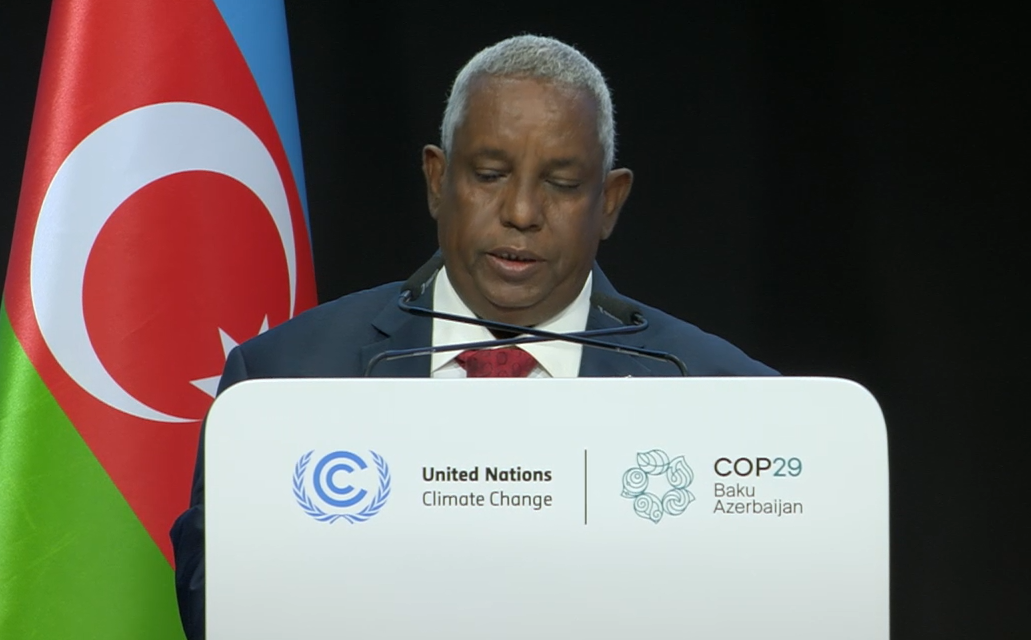BAKU, Azerbaijan, November 20. Loss of sea ice in the Antarctic and glacier retreat are phenomena confirming the acceleration of global warming, said Dini Abdallah Omar, Secretary General of the Ministry of Environment of Djibouti, as he addressed the COP29 summit in Baku, Trend reports.
Omar highlighted the clear signs of global warming, stating, “Heat waves, flooding, droughts, and hurricanes have caused devastation and chaos on all continents.”
He pointed to the extreme climate events of 2024, including mega-fires in Greece and Canada, devastating floods in Japan, Spain, and the U.S., and widespread flooding in Africa. “These events are proof positive that climate change is worsening each year and across all continents,” Omar emphasized.
Omar also highlighted the concerning rise in CO2 levels, noting that they have surpassed pre-industrial levels by 50%, leading to heat being trapped in the atmosphere. He referenced the UNEP report, which predicts a trajectory towards a 3.2°C increase in global temperatures, which is more than double the 1.5°C limit set by the Paris Agreement. “Therefore, we call on industrial countries to reduce drastically their GHG emissions,” he urged.
Djibouti, like many other nations, is already feeling the effects of climate change. “We are facing harmful impacts such as heat waves, drought, rising sea levels, and flooding,” said Omar. He explained that these extreme events have disrupted infrastructure, including roads, schools, hospitals, and housing, as well as agriculture, fisheries, and tourism.
In response, Djibouti has made substantial investments to adapt to these challenges. Omar outlined several key projects, such as the construction of a dam to protect the capital from flooding and a levee to safeguard the coastal city of Chadura. To address water shortages, Djibouti has built a water pipeline to Ethiopia, established desalination plants, and invested in wells to mobilize groundwater.
Regarding mitigation efforts, Djibouti has also taken significant steps, including an electric link to Ethiopia for hydroelectric power and the establishment of a 60-megawatt wind farm. However, Omar stressed that more resources are needed to continue these efforts. “Our NDC needs $3 billion by 2030,” he said, calling on developed countries to mobilize more financing for vulnerable nations.
“We need huge financing to address the challenge of climate change. Therefore, it is critical that we adopt the annual $1 trillion goal at COP29,” Omar concluded. He also expressed his support for the agreement reached in Sharm el-Sheikh on loss and damage, urging for its operationalization to help developing countries cope with the adverse effects of global warming.







